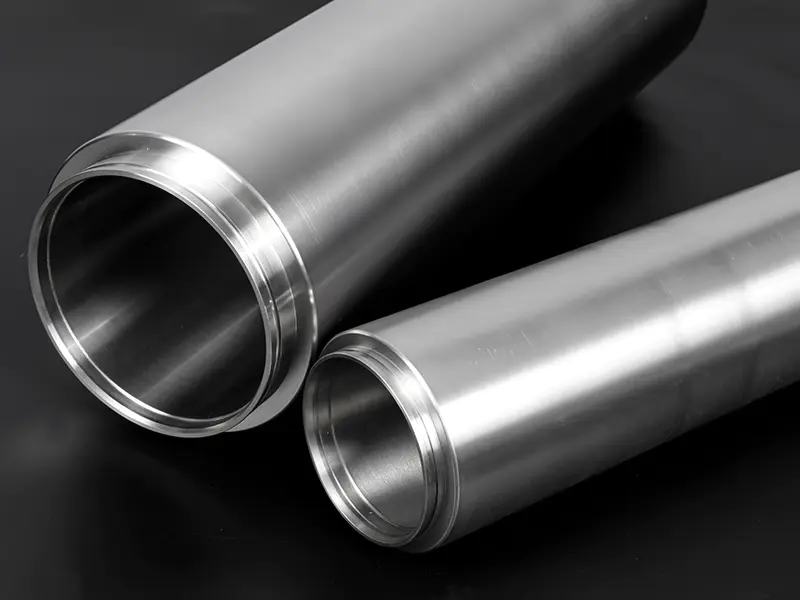In reducing inorganic acids and some organic acids, the corrosion rate of titanium alloy pipes is relatively fast due to the inability to maintain the passive oxide film. Adding corrosion inhibitors is an effective measure to reduce corrosion. Candle retarders include precious metal ions, heavy metal ions, oxidative inorganic food, oxidative organic compounds, complex organic corrosion inhibitors, etc. The price of precious metal ions is very high, and it is rarely used as a corrosion inhibitor for reducing organic acids; to metal ions, copper ions and iron ions have very obvious corrosion inhibition mechanisms.
But it needs to reach a critical concentration before it can work; oxidizing inorganic compounds include nitric acid, chlorine, potassium chlorate, potassium dichromate, potassium permanganate, hydrogen peroxide, etc.; oxidizing organic compounds include nitro or nitrous base compounds, nitrogen compounds, etc.; complex organic corrosion inhibitors are different from oxidizing organic compounds. They can play a role in corrosion inhibition at any concentration. There is no concept of critical concentration, but the effect is different.

Surface treatment is a very effective way to improve the corrosion resistance of titanium alloy sheets. The surface treatment methods include cathodic oxidation, thermal oxidation, nitridation and coating technology. The effect of anodizing, thermal oxidation and coating on the time of crevice corrosion of titanium alloy plates, the data show that the effect of coating on improving the corrosion resistance of titanium alloy plates is obvious, even better than that of Ti-0.15Pd. sex.
The anodic oxidation of titanium alloy plate is usually carried out in 5%-10% (NH4)2sO solution and 25V DC voltage is applied for anodic treatment, and the thickness of the anodic oxide film can reach 300-500nm. Anodizing treatment can effectively remove iron contamination on the surface, effectively prolong the passivation time of titanium alloy plates, and prevent hydrogen absorption caused by positive iron contamination. Therefore, foreign specifications require that all titanium equipment must be anodized. In order to improve the effect of anodizing, sodium platinate is used instead of ammonium sulfate in the anodizing solution, so that the effect of corrosion resistance is better.
The thermal oxidation of the titanium alloy plate in the air can form a rutile-type thermal oxidation strand with a thicker and higher crystallinity than the anodized film, and its corrosion resistance is better than that of the anodized film. The thermal oxidation strand of the titanium alloy plate is formed at a temperature of 600-700 ℃ and a time between 10-30 minutes. If the temperature is too high or the time is too long, the effect is not good.








